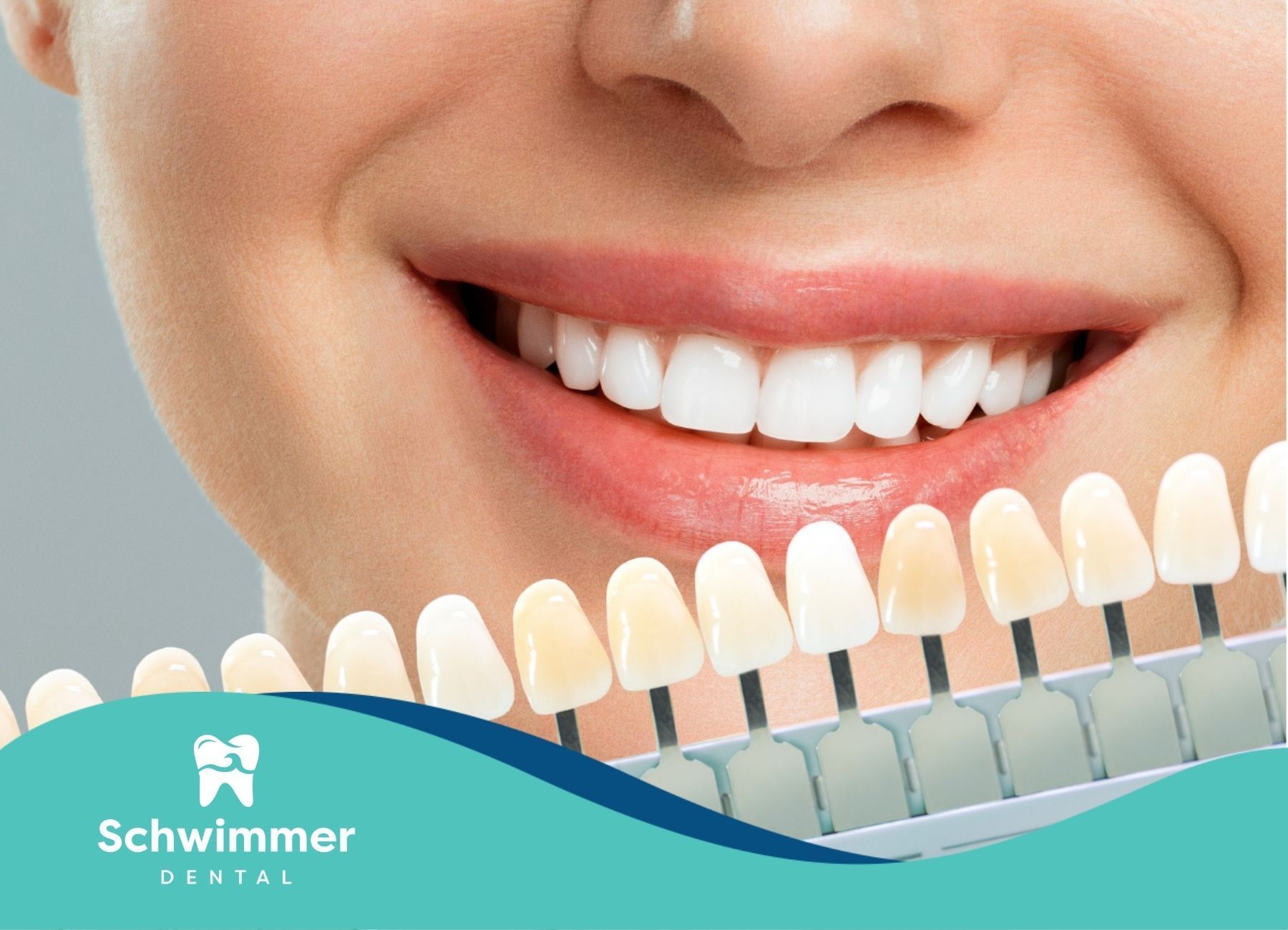Safe & Natural Ways to Remove Tartar Build-Up
Tartar buildup is one of the most common issues I see in my dental practice, and trust me—you’re not alone if you’re struggling with it. Left untreated, tartar (also called dental calculus) can lead to serious problems like gum disease, tooth decay, and even bad breath.
While nothing replaces professional cleanings, there are effective natural ways to manage and minimize tartar buildup at home. In this post, I’ll walk you through simple, science-backed remedies—from baking soda to oil pulling—that you can incorporate into your routine for a cleaner, healthier smile.
Understanding Tartar and Its Impact on Dental Health
Think of tartar as that crusty, yellowish coating that just won’t budge, even after a good brush. It's essentially plaque that’s been left to harden, and it loves to cling to your enamel—especially around the gum line.
When plaque (the sticky mix of bacteria and food debris) isn’t removed regularly, it reacts with minerals in your saliva and calcifies into tartar. And here’s the kicker: tartar provides the perfect surface for even more plaque to stick to. That’s why consistent oral hygiene is so critical.
What is Tartar and How Does It Form?
Tartar, or dental calculus, forms when plaque isn't properly removed through brushing and flossing. Initially, plaque is soft and colorless—but as it absorbs minerals from your saliva, it hardens into tartar and turns yellow or brown. It's rough, porous, and unfortunately, a magnet for more plaque and bacteria.
In my experience, people are often surprised at how quickly this build-up can happen. That’s why I always emphasize daily care and regular dental checkups to prevent plaque from turning into something much harder to manage.
The Consequences of Ignoring Tartar Build-Up
When tartar is left untreated, things can escalate fast. First, it irritates your gums, causing inflammation (a.k.a. gingivitis). If gingivitis isn’t treated, it can progress to periodontitis, which damages the soft tissue and bone that support your teeth.
Tartar can also cause cavities. The bacteria living in it produce acids that weaken your enamel over time. And here’s something many people don’t realize—poor oral hygiene has been linked to conditions like heart disease and stroke. So managing tartar isn’t just about your teeth—it’s about your whole-body health.
Natural Ingredients That Help Remove Tartar
Now, let me be clear: natural tartar remedies are no substitute for professional care, but they can definitely help between visits. These ingredients work by breaking down plaque or making your mouth less hospitable to bacteria.
Here are some of my go-to natural methods for supporting oral health at home:
Baking Soda for Effective Tartar Removal
Baking soda (sodium bicarbonate) is one of the most popular and effective natural ingredients for removing tartar at home. Its gentle abrasiveness helps scrub away plaque, and its alkalinity neutralizes harmful acids in your mouth.
I often recommend making a simple paste with baking soda and water. Brush with this paste once or twice a week—but be gentle! Over-brushing with abrasives can damage enamel if you’re too aggressive.
The Role of Vinegar in Oral Hygiene
White vinegar may not be the tastiest option, but it can help break down hardened plaque thanks to its acetic acid content. Vinegar also creates an acidic environment that discourages bacterial growth.
A diluted vinegar rinse (2 tablespoons of white vinegar to 1 cup of water) can be used once a week. Just be sure to rinse your mouth with plain water afterward to avoid any enamel erosion.
Using Citrus Fruits for a Healthier Smile
Citrus fruits like lemons and oranges are high in vitamin C, which supports gum health, and their citric acid can help loosen plaque.
However, I advise using citrus remedies with caution—too much acid can erode enamel. Consider rubbing an orange peel on your teeth or rinsing with a diluted citrus juice for a few seconds, followed by water.
Step-by-Step Guide to Removing Tartar Naturally
Here’s how you can safely and effectively add natural tartar-fighting remedies to your oral care routine:
Daily Brushing Techniques with Natural Substances
Incorporating coconut oil into your brushing routine is one simple way to boost your oral hygiene. It has antibacterial properties that can help fight plaque.
- Brush as usual with your fluoride toothpaste.
- Then, dip your brush in a little coconut oil and brush gently for another 30–60 seconds.
- Focus on the gum line and hard-to-reach areas.
- Rinse thoroughly with warm water.
This little extra step can make a noticeable difference over time.
Creating Homemade Mouthwashes
Natural mouthwashes can be an easy addition to your daily care. Here are a few of my favorites:
Use these rinses once or twice a day as needed.
Safe Use of Dental Tools at Home
Some over-the-counter dental tools are available for home use, like tartar scrapers. But please—use these with caution.
In my practice, I’ve seen cases where aggressive home scraping led to gum damage or enamel scratches. If you’re considering using tools like these, talk to your dentist first. We can show you how to use them properly or suggest safer alternatives.
Preventative Measures to Avoid Tartar Build-Up
As with most things in dentistry, prevention is better than cure. Here’s how you can stay ahead of tartar:
- Brush twice a day with fluoride toothpaste.
- Floss daily to remove plaque between teeth.
- Use a mouthwash that targets bacteria.
- Drink plenty of water.
- Limit sugary snacks and drinks.
Diet and Its Role in Oral Health
Your diet plays a huge role in preventing tartar and maintaining oral health. Sugary and starchy foods feed the bacteria in your mouth, which leads to plaque formation.
I recommend cutting back on sugary drinks, candy, and processed carbs. Instead, snack on crunchy fruits and veggies like apples and celery—they help clean your teeth naturally. And don’t forget your calcium-rich foods like yogurt and cheese, which strengthen enamel.
Importance of Regular Dental Check-Ups
Even if you’re brushing and flossing like a pro, nothing replaces regular dental visits.
At our office, we use special tools to remove tartar you just can’t get rid of at home. These cleanings also give us a chance to catch early signs of issues before they turn into bigger (and more expensive) problems.
Most of our patients benefit from cleanings every six months—but we may recommend more frequent visits if you’re prone to tartar or gum issues.
Conclusion
Taking a natural approach to tartar removal can definitely support your oral health, but it’s not a magic fix. Combining home remedies like baking soda and coconut oil with consistent oral hygiene and regular dental visits is the most effective way to protect your smile.
In my experience, a proactive, educated approach makes all the difference—not just in keeping tartar away, but in preserving your overall health.
If you’re serious about keeping tartar at bay and want personalized care that goes beyond natural remedies, we’re here to help. At Schwimmer Dental, we combine professional cleanings with tailored advice to keep your smile healthy and bright.
📞 Call us at
(848) 279-4727,
📧 Email us at
office@schwimmerdental.com,
or visit us at
1115 Arnold Ave, Point Pleasant, NJ, 08742 to schedule your next appointment.
Let’s work together to give your teeth the care they deserve!
Frequently Asked Questions
How often should I use natural remedies for tartar?
Start with 1–2 times a week. Pay attention to how your teeth and gums respond, and always consult your dentist for personalized recommendations.
Can dietary changes significantly prevent tartar formation?
Absolutely! Reducing sugar and starch in your diet cuts off the food supply for plaque-causing bacteria. Pair that with a strong hygiene routine, and you’re on the right path to a tartar-free smile.
Sources:
- https://my.clevelandclinic.org/health/diseases/25102-tartar
- https://www.medicalnewstoday.com/articles/324341
- https://ufhealth.org/conditions-and-treatments/plaque-and-tartar-on-teeth
- https://medlineplus.gov/ency/article/002044.htm
- https://www.oralb.co.uk/en-gb/oral-health/conditions/tartar-plaque/dental-plaque-tartar-on-teeth



